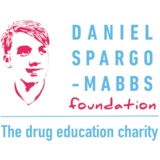
DSM Foundation responds to ASH’s annual survey on youth vaping in Great Britain
Tuesday 29 July, 2025
The DSM Foundation, a charity dedicated to drug education, has welcomed new data released by Action on Smoking and Health (ASH) showing stability in vaping rates among young people aged 11–17 in Great Britain. However, the charity echoes ASH’s concern over a significant increase in those identifying as “ever smokers,” rising from 14% in 2023 to 21% in 2025.
The YouGov survey, which polled 2,746 individuals aged 11–17, reveals that rates of "ever vaping" (20%), "current vaping" (7%), and "regular vaping" (4%) have plateaued. These behaviours remain more prevalent among current or former smokers, and overall smoking rates among this age group continue to be low.
Among younger respondents aged 11–15, just 16% reported having ever tried vaping—a figure that has remained steady in recent years. Notably, 95% of this group do not currently vape, underscoring the relative rarity of regular use among younger teens.
The survey was conducted prior to the UK-wide ban on disposable vapes enacted on June 1, 2025, hence disposable devices remained the most commonly used, although popularity dropped from 69% in 2023 to 42% in 2025. When asked how they would respond to the ban:
- 25% said they would stop vaping altogether
- 59% indicated they would continue, with 67% planning to switch to reusable devices and 44% saying they would turn to illicit disposable products.
Concerningly, nearly half of youth vapers (47%) reported experiencing strong or very strong urges to vape – up from 26% in 2020 – indicating rising levels of dependence. Around 30% admitted to using nicotine concentrations at or above the adult legal limit (20mg/ml), while a similar proportion were unsure or declined to disclose their usual strength.
Social influence remains a dominant factor, with over three-quarters receiving their first vape from someone they knew, typically a friend. Despite legal restrictions, 46% of underage vapers said they had purchased devices from shops, while 25% sourced them informally.
Exposure to promotional content continues to play a role, with:
- 55% seeing vape advertising in shops
- 29% encountering promotions online, most commonly on TikTok, followed by YouTube and Instagram
“DSM founder and director Fiona Spargo-Mabbs OBE comments: “This annual survey by ASH is such a valuable insight for us as a drug education charity into trends in young people’s experiences of vaping and smoking. It enables us to ensure our provision is relevant, current and of use to young people – and the adults in their lives – when it comes to managing decisions that affect their health and wellbeing. With such significant shifts in policy relating to vaping, as well as in public perceptions and attitudes to vaping, smoking and other nicotine products, having current data is so important. Seeing this rise in young people smoking after so many years of steady low numbers highlights this importance – this is a real concern that we need to respond to urgently.”
Information for editors:
The DSM Foundation is a drug education charity established in 2014 following the death of 16 year old Daniel Spargo-Mabbs from an accidental overdose of ecstasy. His family felt that he simply hadn’t known enough to be able to make decisions that would keep him safe, and realized there was a huge gap in the resources and support available to schools, so set up the charity in order to spare other families going through what they had experienced.
The aim of the DSM Foundation is to provide young people with relevant, age-appropriate, up to date and evidence-based information about drugs so they develop the skills to make choices that will keep themselves and their friends as safe as possible. To this end, the charity is currently working in almost 750 schools, colleges and community organisations with children and young people, and also provides workshops for parents and caregivers, and training for school and college staff – the two groups shown by NHS survey data as the most likely sources of information about drugs and alcohol sought out by 11-15 year olds. Educational settings are also able to access “I Love You Mum, I Promise I Won’t Die”, a verbatim play by Mark Wheeller that was commissioned by the charity to tell Dan’s story in the words of his family and friends, through studying the work itself (sometimes due to it being a GCSE Drama set text on the Eduqas syllabus), or booking a Theatre in Education performance. Schools and colleges can also download age-appropriate, relevant, up to date and evidence-based drugs education lesson resources free of charge from the DSM Foundation website for delivery by teachers through PSHE/PSE provision.
For more information about the DSM Foundation, go to https://www.dsmfoundation.org.uk/.
Media enquiries about this press release or the work of the DSM Foundation should be sent to media@dsmfoundation.org.uk.
Distributed by Pressat

